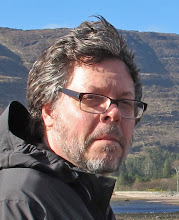S. S. "Roi Albert", Kasai River
Nov. 16, 1923
Dear Mother & Daddy:
It has been quite a while since we have begun to prepare for our departure. Having both the work of the station Treasurer and the Printing Department, it took quite a bit of detailed explanation to my successors to leave everything in good order. And especially as the Station Treasurer has not had much experience of this kind. Then too, our personnel at Luebo is very slim now. In June we were twenty adults, and now there are only seven left, which means that every one has a larger burden to carry.
Dorothy has written you something about our difficulty in getting away from Luebo, and our trip to Basongo. It certainly was exasperating, but it looks like the Lord just saved us that many days from waiting at Basongo--one of the worst mosquito resorts I've ever seen in the Congo. As it turned out we stayed there only two days, whereas if we had left according to first expectations we would have had two or three days more.
This is Friday AM. and we have just left a post called Mushie, which is just a little above the junction of the Kasai and Congo rivers, and just at the head of the narrow part of the Kasai River called the "Kwa." We spent two days and a half at Mushie, taking on cargo. This is one of the largest cargo boats on the Congo River, carrying --with a large barge) about 1000 tons. We think the "Lapsley" is a good sized boat, but she only carries 50 tons. (However, she is one of the fastest boats on the river, including all the larger boats, such as this one, of which we are naturally proud.) They took on nearly 400 tons of cargo at Mushie, which is a big job when it has to be done by natives, carrying sacks on board one
at a time. We were due for several days stay. We reached Mushie Tuesday at noon, and last night (Thursday) the Captain kept the men at work all night and we got off this A M. at 8:00. The native workmen began work at 6:00 A M. yesterday and worked till 12:00 ; went back at 2:00 and worked until about 9:00; then went back at 10:00 P. M. and worked until 4:30 A M. today, making about 20 solid hours. Their work was carrying sacks of palm kernels weighing about 110 lbs. each on board; just imagine a man doing this for about 20 hours! ! ! We were certainly glad to get off today, for the Davis' at Kinshasa, whom we are to replace, are anxious to leave on the Steamer for Europe which leaves Matadi Nov. 23d and this is the 16th of Nov., and it takes two days from Kin to Matadi, and then he must give me plenty of information about the work there before he leaves.
Kinshasa, UNION MISSION HOUSE, NOV. 20TH, '23
You will note from the above that we are now in Kinshasa (we always call it "Kin" for short, so remember what KIN means.) We arrived Saturday about 11 :00 AM. and found the Davis' rather anxious as to whether we would get here in time or not to take over the work before they were due to leave. The Davis's and Mr. and Mrs. Byrlee, of the D.C.C.M., left this morning for Matadi, their boat sailing for Europe on Friday AM. (It is a two days trip to Matadi). So we are now alone, and fortunately, I suppose, we have no visitors and time to get things straightened out. We are delighted with the place, although there may be times when we will have somewhat of a rush, still there will be others when we will be practically free. And the house is in excellent shape, everything one needs for their comfort, and I guess a little more-certainly is different from what I found out here my first trip, and far different from what we found at Kin a little less than three years ago, when we could hardly find a place to stay. I'll try to go into more details about the house, work, etc., later, as we naturally have a lot of little things to do just now. The mail for the boat (the one the Davis' are going on, is to close tomorrow. Here we know exactly when the big steamers are due to arrive and leave; in fact, we are really in a CITY. Shops with practically everything one wants; electric lights (we have them too), automobiles (about 200 in Kin, I hear), motorcycles, etc., etc. In 1915 when I first came here there were about 200 white people. and now there are nearly 1000. The Capital is to be moved here from Boma in 1925, and they are already making provision for it in buildings, etc.
There are two families at the Baptist Mission here (this is known as the B. M. S. (Baptist Missionary Society). All the Missions out here are known by their initials; ours being the A. P. C. M. Mr. and Mrs. Kirkland, who came out on the Anversville with us are here, and very friendly; also Mr. and Mrs. Hilliard, younger missionaries. So we have some neighbors; they live only a few hundred yards from us; in fact, the ground occupied by the U. M. H. was obtained from the B. M. S.
We will write you more in our next letter (by the next boat). Dorothy will tell you about the Millers not having arrived; they may be here on the next boat, which is due about Dec. 7th or 8th (the schedules of the big boats are very regular, both arrivals and departures, and we can count on them.)
With love to all. As ever,
B. M.

No comments:
Post a Comment